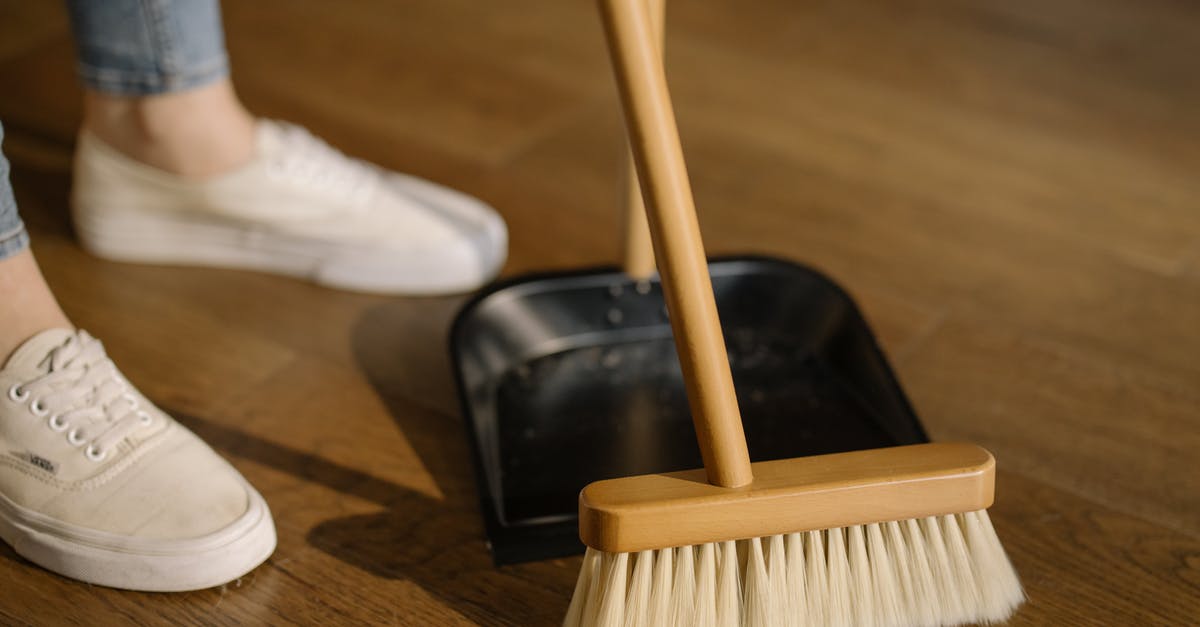Why do chefs insist that cleanliness is next to godliness?

From what I've heard and seen, chefs seem to be very concerned that the area that they are working in is kept spotless. For instance, when cutting up veggies, they are careful to keep everything on the cutting board and are quick to clean the counter if anything gets on it. Is there more to this, or is it really just because they want a clean and orderly area?
Thanks!
Best Answer
Cleanliness, as pTerry reminds us, is only next to godliness in a very sternly abridged dictionary.
However, working clean has three main things going for it:
- order! when you're trying to bang out a couple hundred dishes as fast as possible, being orderly and methodical in your work is not just important, it is absolutely vital.
- safety! see above. if your area is a mess, you're more likely to injure yourself or others. Bear in mind that we play with sharper knives and hotter burners than you do at home
- health! a clean work area is one that is free of cross-contamination.
Per calumbrodie's answer below, I'd like to expand a bit on the need for order. I'll do this by telling you about my day today.
We've just rotated the kitchen; chef does this from time to time to make sure everyone is cross-trained on all stations. So right now for the restaurant I'm responsible for sandwiches (one hot menu sandwich, one daily special), prepping one of our appetizers, one hot appetizer, soup daily, and one of our main courses (crepe stuffed with pan-roasted wild mushrooms, caramelized shallots, and barre boulard cheese which is just heavenly). In addition to that, we also have a takeout counter and a satellite location elsewhere in the building; for those I am responsible for sixteen sandwiches daily (different from the restaurant sandwiches!) as well as stuffed chicken which goes with a salad.
We start work at 9:30AM, everything for the takeout must be ready by 11:15, and restaurant service runs from 11:30 until 3PM. You should be able to see the time constraints this imposes.
When I walked in this morning, here is what I had to do just to get the counter stuff out, and be ready for service:
Bake bread (parbaked, frozen, from a local artisanal baker; we simply do not have the room to bake our own, although chef is open to the idea of tasking me with that)
Bread, par-fry, stuff, and bake chicken breasts.
Deep-fry onions until crispy (garnish for the menu sandwich)
Make crepes (must be done fresh daily)
Make sandwiches for the counters (today I was lucky; I had some of the mise ready from some free time on Saturday)
Oops, mayonnaise didn't come in Friday's delivery, better make some...
Make garnish for the soup I made Saturday
Double check all my mise en place in case I forgot something. Chef has slimmed down the menu somewhat, but I still have roughly fifteen to twenty different components which must all be ready, all the time. With backups in case we get slammed.
I have 1h 45m to do all of these things. And while I work best in a situation that looks like chaos to the outside observer, everything is carefully organized and planned. For example, crepes are something that--if you've made enough of them--you can interweave with another task: make the batter first. Ladle batter into pan, spin around, put back on the heat. Good, now I have a minute or two to work on another task; make a sandwich. Flip crepe, cut and wrap sandwich. Remove crepe from pan, repeat.
And this was a slow day. On a busy day, this list could easily be twice as long, including some things that will simply take time and require undivided attention.
So that took right up until service. During service I'm still prepping: everything I need for tomorrow that can possibly be done today, I do. So... roasting turkey for tomorrow's sandwich, making a cranberry aioli, making crab croquettes for the entremetier station (so: mashed potatoes, chilled--oh dear that's going to take two hours to come down in temp, better get started now--then folded around a crab mixture), some sort of stuffing for tomorrow's chicken... and on top of that I've got to be planning for Wednesday, for which I will need a new soup (and garnish), gotta roast another lamb leg--and that needs to chill too so I can slice it carefully, make sure I've got enough bread in stock, and oh wait--we have a catering function Thursday for which I need to make about a dozen things, best figure out when I'm going to do that... And all of this is being done while chits are coming out of the printer, so I need to be organized in such a way that I can not only stop whatever project I'm working on, but that having those ingredients/tools on my station won't impede my ability to serve food in a timely manner.
...you get the point. (There's a much better treatment of this, from an exec's POV, in Bourdain's Kitchen Confidential).
Without some order to my workspace (which is thankfully large), I would quickly be dans la merde and everything would go a bit pear-shaped. I've had those days, and it is difficult for me to convey how much it sucks to look at the clock, know you have five minutes left, and know that you have fifteen minutes of work still to go.
The thing about working in a kitchen is that, apart from a very few places which run with military precision (Alinea, Fat Duck, elBulli, Moto, the Laundry, etc), there is never enough time. Ever. And when there is enough time, well, there's always something else that can be done. So you have to be organized. There's just no way not to be. And you always have to be thinking several steps ahead of where you are; focus on now and you're screwed later.
This has wandered somewhat far afield from 'cleanliness', but cleanliness and order are opposite sides of the same coin. Without both, you're SOL. And the thing about being orderly in your work is that being clean will flow naturally from that. The reverse isn't necessarily true.
Pictures about "Why do chefs insist that cleanliness is next to godliness?"



Why is cleaning after cooking important?
It's important to keep knives, wooden spoons, spatulas, tongs, and the like clean to help stop bacteria spreading to food. It's especially important to wash them thoroughly after using them with raw food, because they could spread bacteria to other food.Do chefs clean as they cook?
In professional kitchens most chefs enforce the \u201cclean as you go\u201d rule, which prevents unsightly messes from building to unmanageable levels and removes clutter, which can distract even the most efficient cooks as they chop, grill, and plate through the evening.Why do chefs curse?
Some of the reasons as to why this is the case are as follows; Higher standard kitchens attract higher standard chefs with more experience. This means they are better at cooking the dishes and get flustered less easily. The affect is that swearing and shouting is rarely necessary.How do chefs stay clean?
10 Ways Keep Your Kitchen Cleaner While You CookClaudio Aprile Cooks A Lamb Dish Alongside The Chefs | MasterChef Canada | MasterChef World
More answers regarding why do chefs insist that cleanliness is next to godliness?
Answer 2
http://en.wikipedia.org/wiki/Mise_en_place
and watch this
http://www.youtube.com/watch?v=ochyO45Jb0g
Having your work area tidy mirrors the tidyness that you need to have in your thoughts when carrying out a large number of tasks in sequence. No matter if it's preperation or during service, there is an easy way and a hard way to do everything. It turns out that keeping your work area miticulously tidy is actually easier that leaving a mess all over the place.
I'm not saying you should take the above film literally - but there's a lesson in there somewhere.
Sources: Stack Exchange - This article follows the attribution requirements of Stack Exchange and is licensed under CC BY-SA 3.0.
